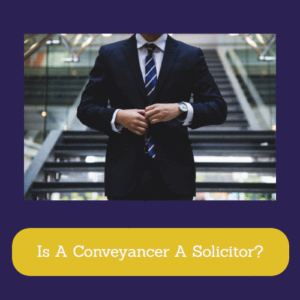 How to find a good conveyancing solicitor – communication is key
How to find a good conveyancing solicitor – communication is key
Communication is without doubt the key that will help you find a good conveyancing solicitor. But why?
Conveyancers in the UK as a whole tend to attract a bad reputation. Often though, this reputation is not the fault of the individual.
Because the conveyancing process can be long and complex. Issues can arise. Timeframes can get stretched as any one of dozens of different organisations fails to respond in a timely fashion.
What lets many conveyancing solicitors down is that they fail to communicate the reason for these delays to their clients.
To find a solicitor near you contact us on 0845 1391399 or complete a Free Online Enquiry.
How To Find A Good Conveyancing Solicitor
1) Get A Direct Line To Your Actual Solicitor
Large law firms that have a specialist conveyancing team are all very well. Ideally though, you will want a specific named solicitor who is handling your case.
Having a named contact means you have someone who will always be up-to-date on the details of your particular case. If you have a question, they can answer it.
Medium and larger firms may delegate “admin” work like communicating the status of cases to a paralegal or assistant. This might be acceptable in a small office where a personal link can be maintained.
In the largest conveyancing firms (these are sometimes called “conveyancing factories”) though, it often leads to a situation where an assistant can only check details on a screen that you can check yourself, leaving you none-the-wiser.
2) Test Their Communication
Once you’ve got a name, it’s time to get a sense of how well they communicate with you. Get in touch with them. Try emailing. Give them a call. See what happens. Have a couple of questions ready. Then you can ask yourself:
- Do they respond in a timely fashion?
- Do they call you back if they can’t answer immediately?
- Are they ready to discuss your case?
- Are they across the detail?
- Do they seem eager to help and answer questions?
This may come down to your “gut reaction” to any rapport you seem to have. But this is an important part of working with a solicitor for any reason – trust. If you don’t have it, it’s difficult to believe your conveyancing solicitor is any good at all.
3) Ask What Happens In An Emergency
It’s not always necessary in conveyancing, but knowing what they will do if something unexpected happens can be a useful barometer.
One – hopefully unlikely – scenario is that you have some sort of legal problem with the property arise outside of business hours.
A slightly lower-key but more likely issue is that your regular solicitor goes on holiday. What would happen then? Is there a replacement? Who are they?
You don’t want to risk your communications getting interrupted.
Should I Use A Conveyancer Recommended By My Estate Agent?
One “easy” solution to finding a conveyancer is to use the one recommended by your estate agent. It’s rarely a good idea to go down this route though.
Most estate agents have deals with at least one conveyancing firm. These kinds of deals come with some pretty exciting referral fees (for the estate agent, not for you) that tend to make them more expensive than other options.
There’s also at least one major UK chain of estate agents that owns its own conveyancing firm.
In short, it’s not guaranteed that using a conveyancer recommended by your estate agent is a good deal for them and a bad one for you. But it’s definitely worth seriously investigating any recommendation before you go ahead.
What If I Have No Choice In My Conveyancer?
Some mortgage lenders have “approved panels” of conveyancers. These may be wide-ranging or quite limited. This may restrict (or entirely remove) your choice as to which solicitor you are able to use.
In these cases, if you think you need to use that lender but are also less than confident about the quality of service their conveyancer will deliver, you are – unfortunately – a little bit stuck.
Unless you can go with another lender, you’ll just have to stick with the slightly less-than-perfect service.
Find A Good Conveyancing Solicitor
The best tip to help you find a good conveyancing solicitor is to start your search as soon as possible. Don’t wait until you have an offer accepted. Start reaching out and judging the responses you get.
Get In Touch Today.
Let us know a little about your situation on 0845 1391399 or by completing a Free Online Enquiry today and we can connect you with a legal specialist who can give you the kind of advice you’re looking for.

 Ask a residential property solicitor – why does conveyancing take so long?
Ask a residential property solicitor – why does conveyancing take so long? This is a common question among people wanting to buy or sell property. So, is a conveyancer a solicitor?
This is a common question among people wanting to buy or sell property. So, is a conveyancer a solicitor? Commercial vs residential property solicitor – the differences
Commercial vs residential property solicitor – the differences How to find good conveyancing solicitors near me
How to find good conveyancing solicitors near me